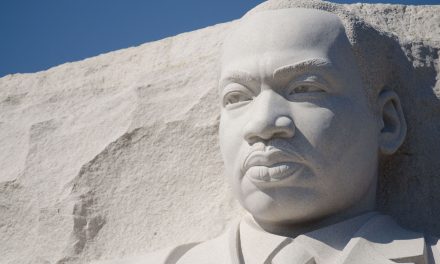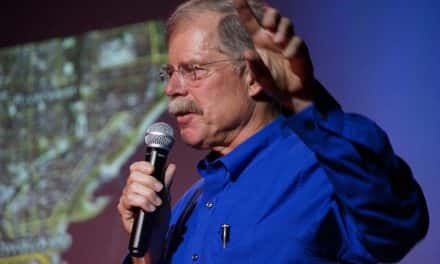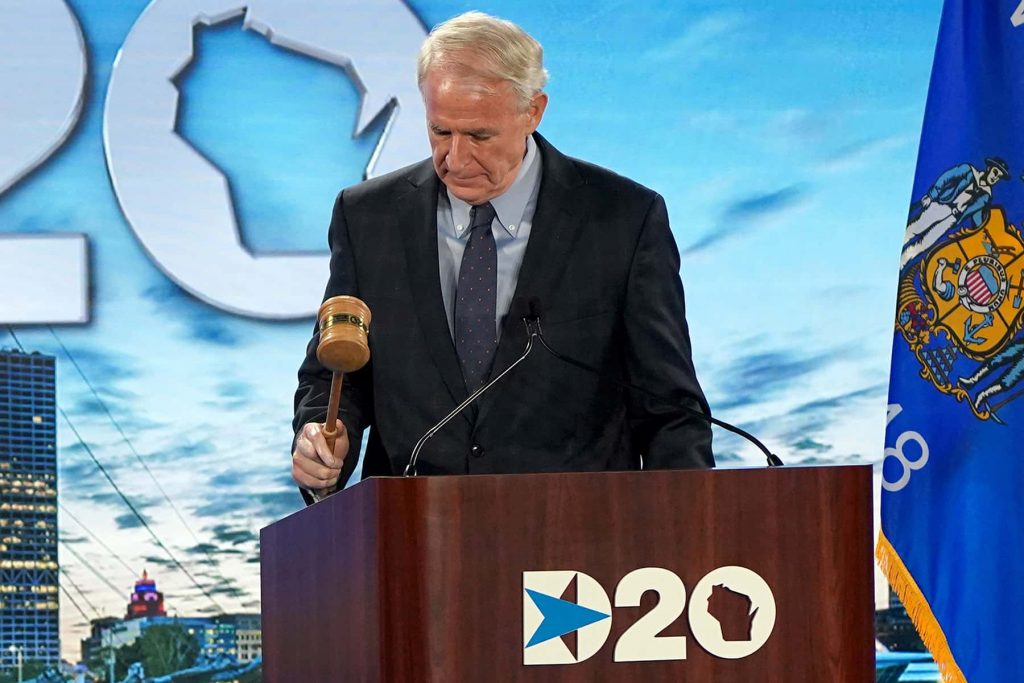
December was full of messages pushing the spirit of giving on consumers, and reminding those who itemize their taxes that charitable 2021 deductions would vanish on December 31st.
I found myself talking back to the TV and appeals by mail that crushed me over the holiday month. Why was a children’s hospital asking for money when every other developed country in the world finances pediatric research and pays the full cost of kids who need medical care?
Why were dozens of charities helping homeless people when Finland — a country nowhere near as wealthy as America — has functionally ended homelessness according to a 2020 report at HUD’s website?
Why were we running charity-funded food banks when hunger in America — which stalks the lives of one in five American children — could be ended with $25 billion a year investment? That total was ironically the same identical amount of money Congress gave the Pentagon over and above what they asked for in the 2022 budget.
Why were gofundme sites filled with appeals for help buying essential pharmaceuticals like insulin which costs $25 in Canada and is paid for by the government, while here it can cost $500 or more?
Why were our candidates for public office begging for cash to take on dark money interests when in most other functioning democracies billionaires are forbidden by law from bribing politicians and corporate campaign activity is strictly limited?
Why were kids asking their parents or friends to help pay off student loans when such loans pretty much do not exist in any other developed democracy – and did not in America before the Reagan administration?
I spent about 20 years of my life in some of the world’s worst war and famine regions doing international relief work through the German charity Salem International, as well as Louise and I starting a community for abused kids that ran as a charity here in the U.S. for over 30 years.
Living in both the United States and Europe, we noticed that Europeans are big givers to the truly destitute of the world, while Americans are more preoccupied with helping out each other here in America.
Why is it that people in England, for example, give around 20 percent of their charitable contributions to groups and people in desperately poor countries outside the UK, while Americans only send 4 percent of our philanthropy overseas?
Is it because there is such deep and profound need here in the United States?
The answer, it appears, is “Yes.” American government, uniquely in the developed world, routinely fails the majority of its people in need — all while handing billions in subsidies and tax breaks every year to the top 1 percent.
This is no accident.
A rightwing network of billionaires and foundations began, in the 1970s, following an outline by Lewis Powell selling Americans on the idea that government is an evil and dysfunctional thing and that the real core idea of America is “rugged individualism.” That instead of government looking out for the general welfare of its people, Americans in need can “just stand on their own two feet.”
Their motivation, of course, was greed: they wanted the then-top personal income tax bracket of 74% abolished, the estate tax gutted, and corporate tax laws so shot-through with loopholes that they could make hundreds of billions in reported profits and not pay a penny in taxes.
These people and their think tanks, publications and media networks argued that when society helped people with food, housing, medicine or even walking-around money they didn’t “work for,” it made them lazy and destroyed their self-initiative.
There was, however, an exception to their sales pitch: When their morbidly rich children inherit “unearned money,” that instantly turns them into “Job Creators.” So it’s imperative to eliminate the estate tax to “rescue” the jobs they can use their inherited money to “create.” Free money, using their bizarre logic, “motivates” wealthy children while “destroying the initiative” of poor children.
The big lie these billionaires and their political and media shills have sold us since the Reagan Revolution is that nature designed humans to be “on our own,” and to “stand on our own two feet.” When Americans live in places that are deeply impoverished, where jobs were shipped overseas, where local big-box/fast-food employers only pay crap wages, well, that’s just our own damn fault.
Margaret Thatcher, Reagan’s idol, went so far as to say that low-income people “are casting their problems on society. And, you know, there is no such thing as society. There are individual men and women and there are families. And no governments can do anything except through people, and people must look to themselves first.”
But she was wrong. Humans are social animals, and have helped each other out through our social and cultural systems since the dawn of humanity.
Even those of us fortunate enough to have been born with advantages like having middle-class, educated parents and in places with good schools and employment opportunities didn’t stand up in life on our own.
We have clean food and water, warm housing, safe medications and reliable transportation systems because we Americans have historically worked together — through the institution of government that we created for this very purpose (the “General Welfare” in the Preamble of the Constitution) — to protect and lift up even the least among us.
In 1991 I was working during a brutal winter in the Kaliningrad region after the Soviet Union fell, helping people recover their long-lost “peasant” agricultural systems so they could feed their rural small villages. Everywhere we went there were hitchhikers, ranging in age from 10 to 80.
Horst von Heyer was a dear German friend who is now passed away but remembered the terrors and horrors of World War II (he was 15 in Bavaria when the war ended) and spent much of his life afterwards working for Salem in places in crisis, particularly in Africa.
That winter in Kaliningrad, he commented to me one afternoon as we drove near the Polish border past dozens of shivering people with their thumbs out, “You can tell how poor a country is by the number of hitchhikers you see on the road.”
Here in America, I would rewrite Horst’s dictum. The 2022 version, I would argue, is: “You can tell the social and spiritual level of distress of a country by the number and desperation of its private charitable appeals.”
America can do better.
We have the means — more easily than any other country in the world, based on our wealth — to make sure every American has housing, healthcare, food and a good education.
We can end student and medical debt.
We can free the next generation to fulfill their potential and bring peace and harmony to the world.
And if Americans can get past the “rugged individualism” lie peddled every day by our billionaires’ rightwing media, we will.
© Thom Hartmann, used with permission. Originally published on The Hartmann Report as America Must Awaken From the Big Lie of “Rugged Individualism”
Subscribe to The Hartmann Report directly and read the latest views about U.S politics and other fascinating subjects seven days a week.














